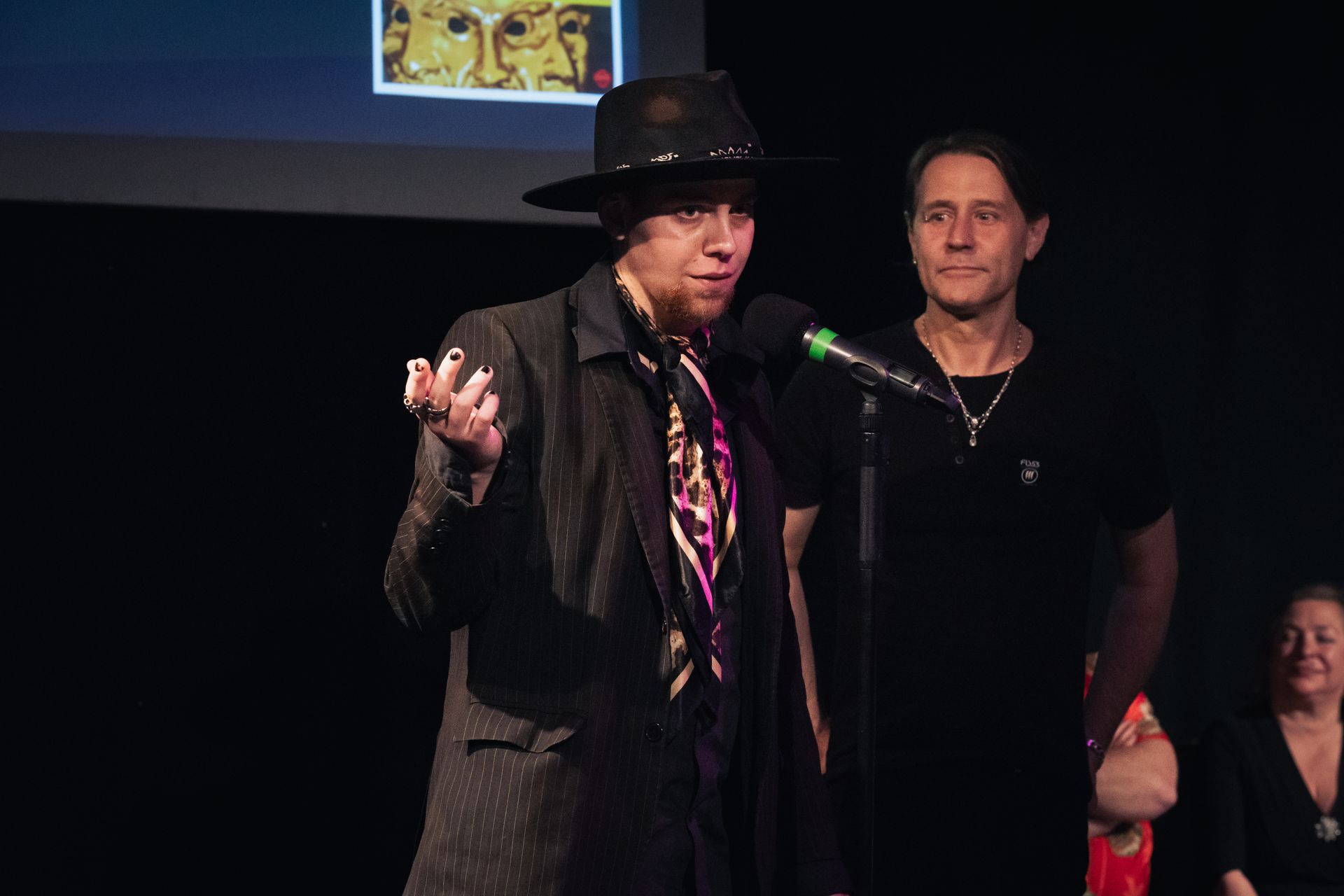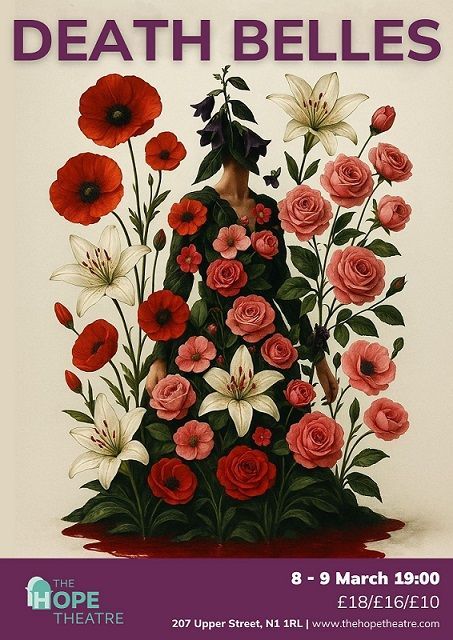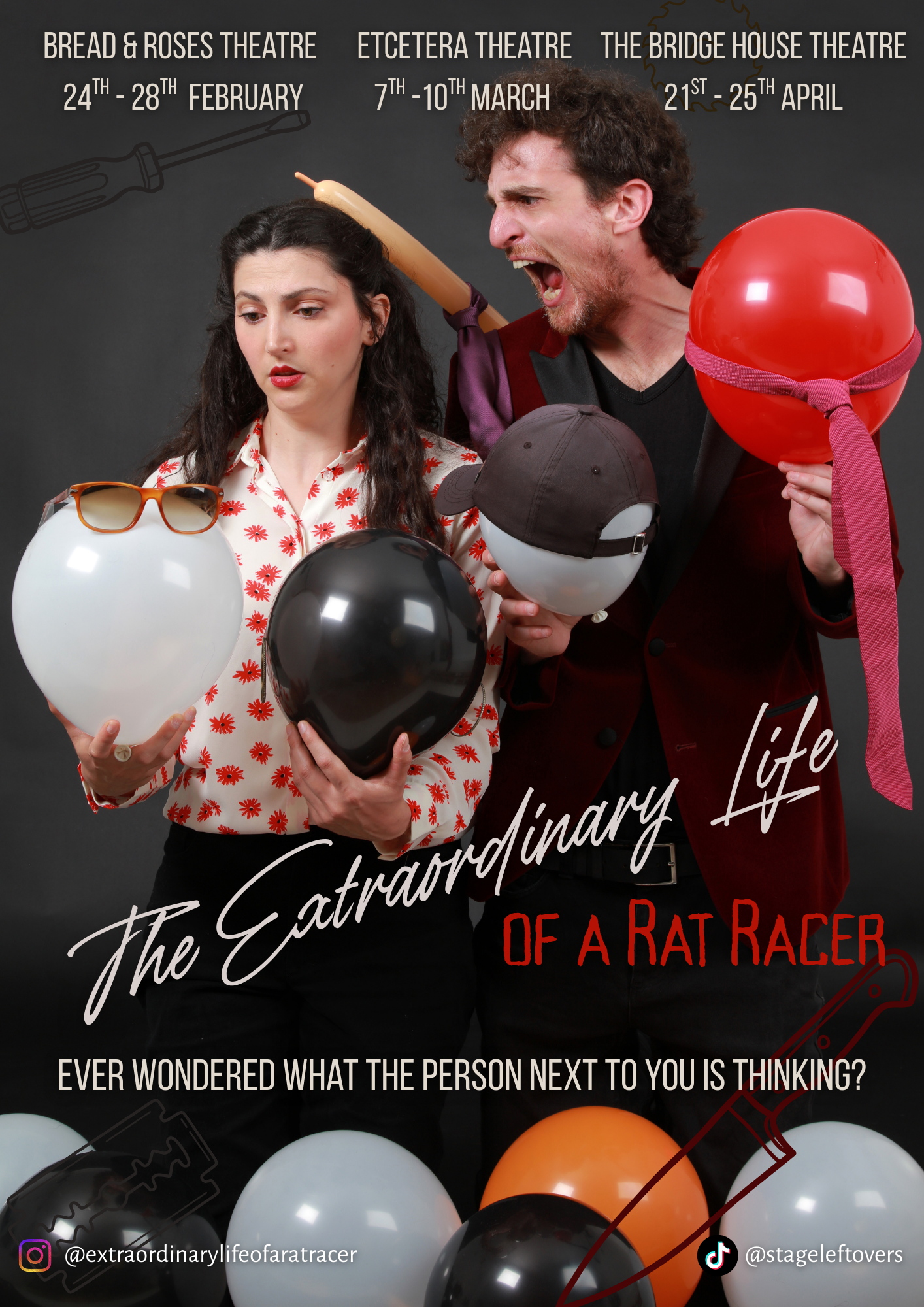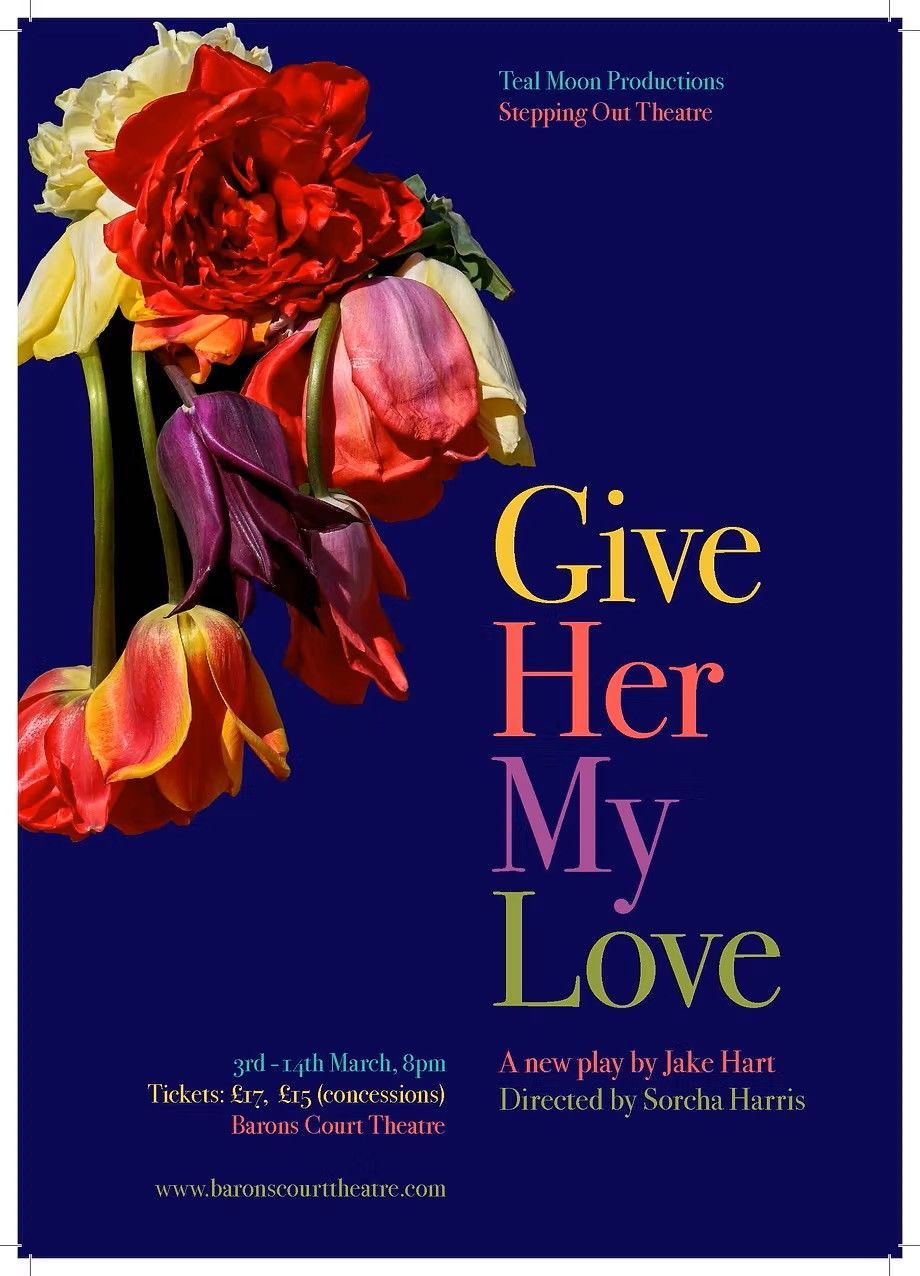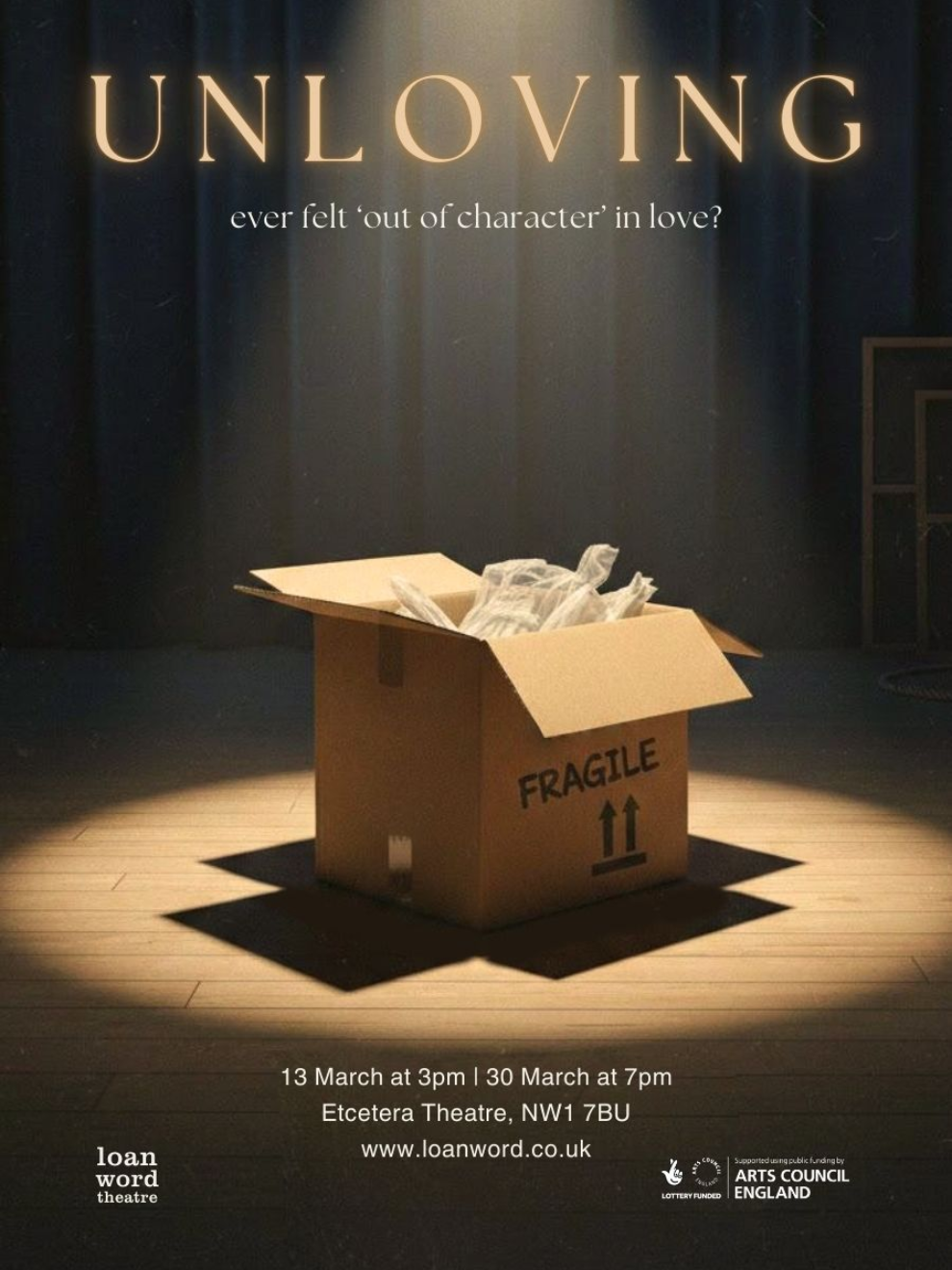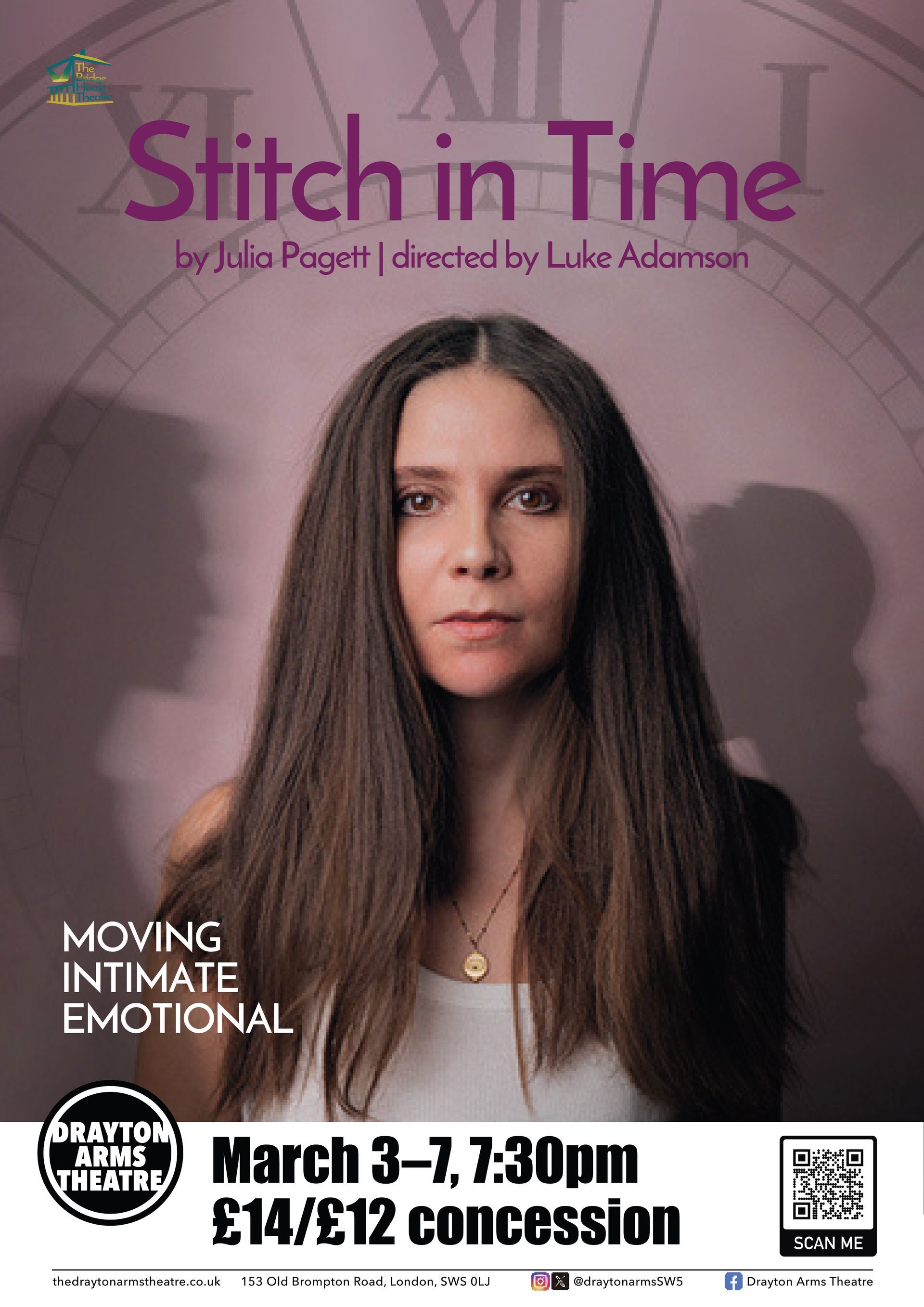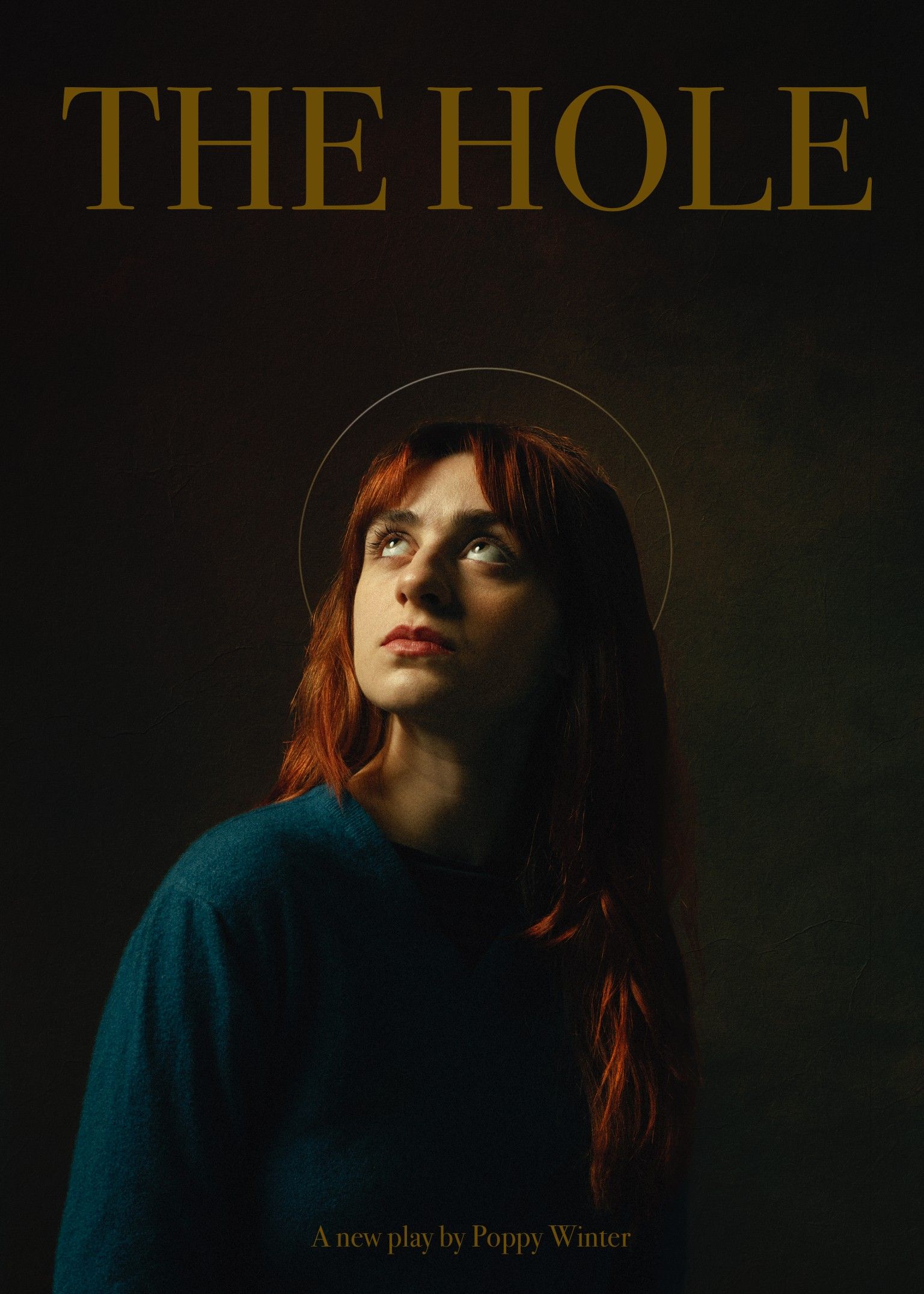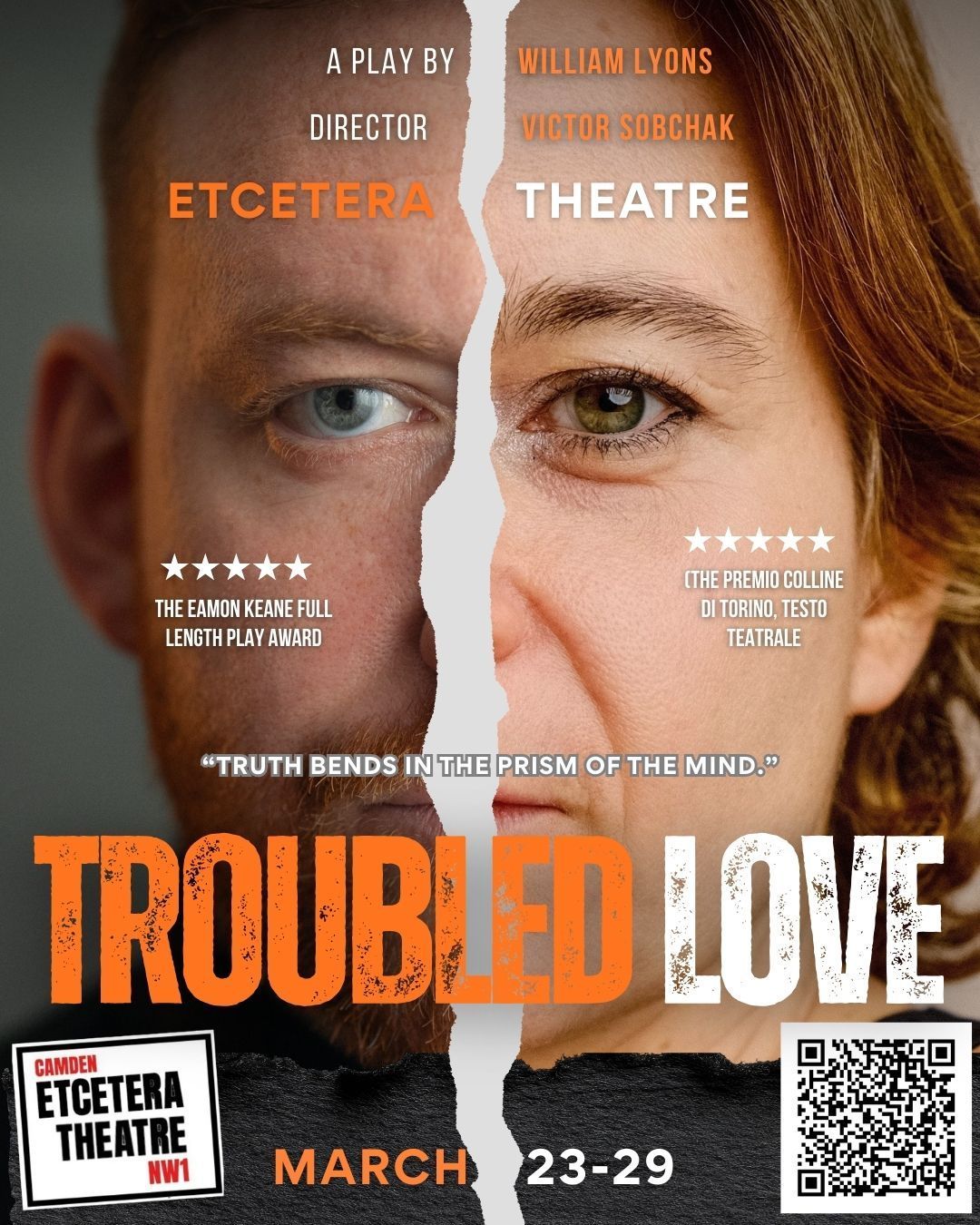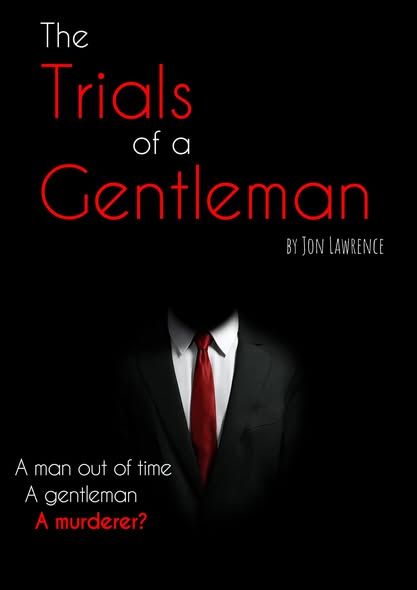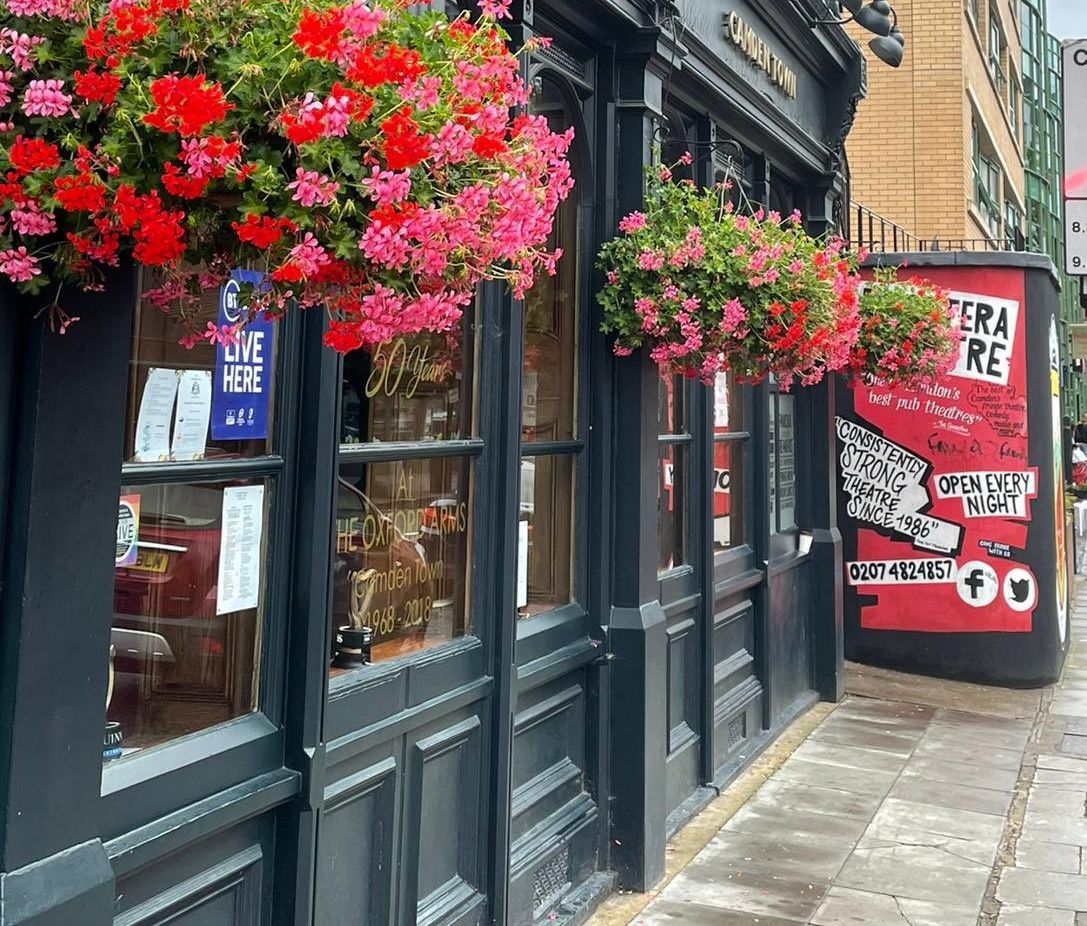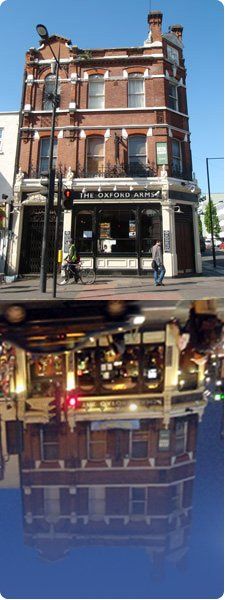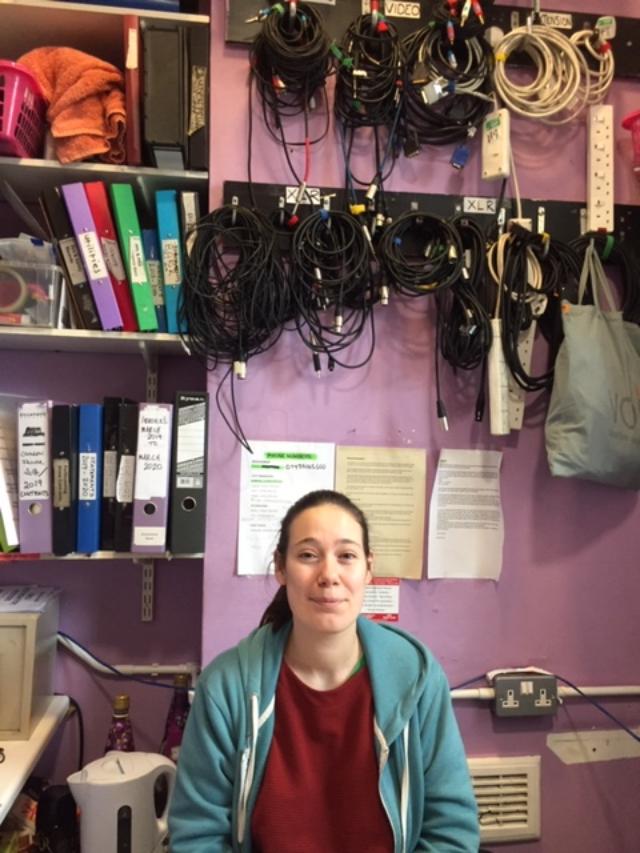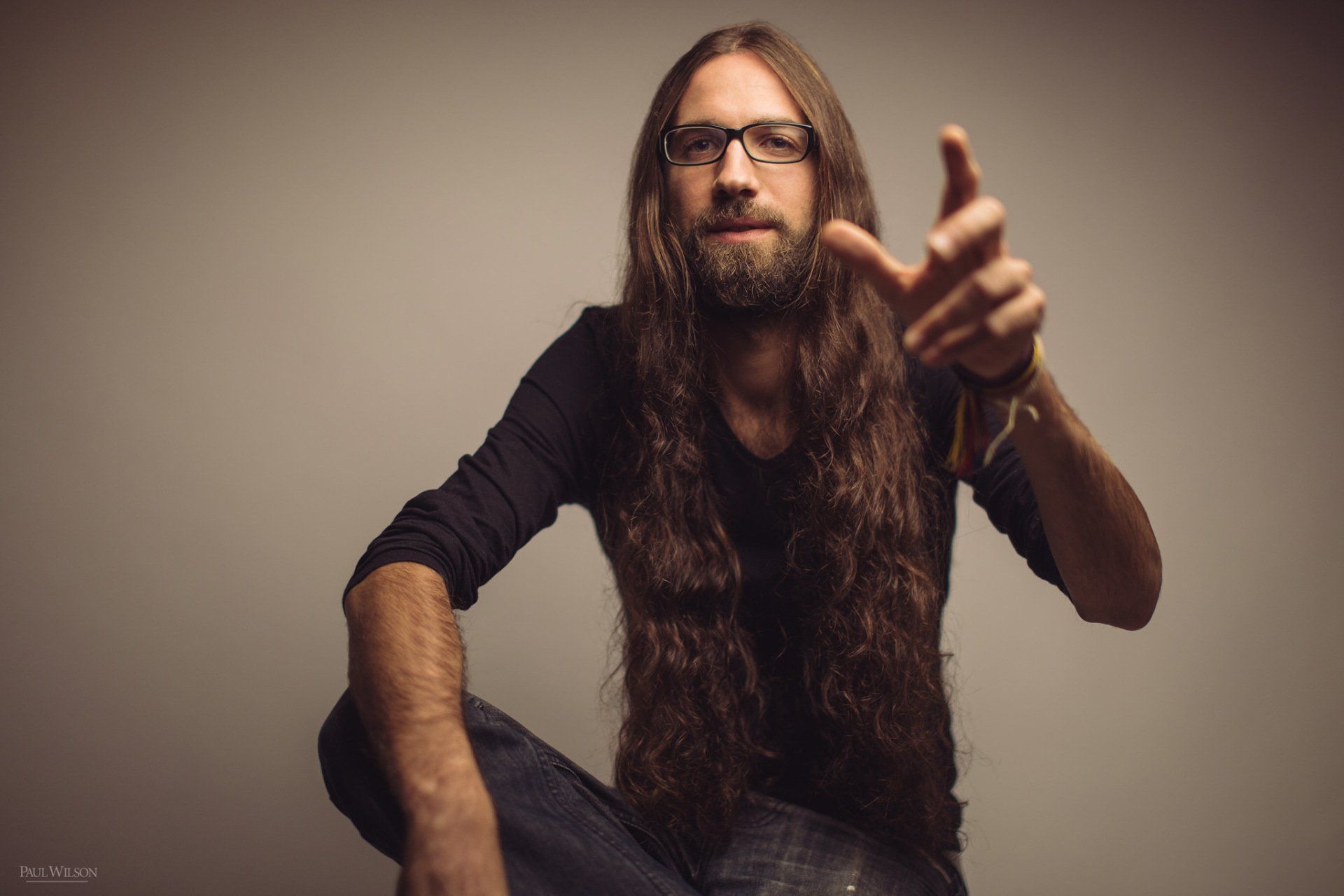One of London’s top 10 theatres for a date in London on Match dot.com
Interview with Artistic Director Pierre and Maud Madlyn (in 2017)
“You still have those few places that are alternative and cool – you can’t go to just any part of London … that doesn’t work anymore. You have to go to specific places rather than areas.”
Maud Madlyn
Maud Madlyn took over as AD of Etcetera theatre in 2014. She started as a volunteer for the London Horror Festival, then started working part time in the office and eventually was offered management of the Etcetera Theatre. Her degree in cultural administration along with her training and experience as an actress prepared her well for the role.
Taking over from Charlotte Chinn and Kate Dawson, meant Maud would need a second person to help her with the workload and it wasn’t long before she recruited brother and musician Pierre:
“Pierre was the only person I trusted to go into business with. I knew Pierre had business skills, he was manager of his own band. There are parallels between our different arts. It’s different but the nitty, gritty, the egos, the amount of work is very similar. Sensibility toward the crowd you work with was a plus.”
Pierre was living in Nancy, (France) giving guitar lessons, touring, and recording. He adds disarmingly honestly that: “I was getting tired of band life, tired of the complicated relationship with my girlfriend”. After running his own band, Pierre found that although the environment was different, different paradigms but essentially, it’s the same. He caustically adds “I don’t have to deal with babies (mainly drummers and bass players). A band is a complicated thing, it’s like having a healthy marriage between three or four people”.
For Pierre, one of the things that makes this theatre special is that “it’s a bit hidden and you get the feeling that it’s something no-one else knows about”. Although it’s slap bang in the middle of Camden High Street, the road is so busy and bustling with tourist that they walk right past The Oxford Arms, without knowing there’s a theatre above. There is also “the intimacy of the space”, as Maud asserts: “It’s one of the smallest pub theatres with just 42 seats, the fact that it’s raked and has comfortable seats …”.
If you aren’t yet convinced of the romance of the theatre, you should be where I’m sitting looking at the long streaming hair and slender physique and that’s just Pierre. Maud is similarly attractive with a well-shaped head framing her lovely face. And … did I mention … they’re French!
Maud and Pierre lived in Philadelphia for some years and so Pierre’s accent is charmingly French Philadelphian whilst Maud has the clarity and eloquence we might expect from a well-trained actor. England is no culture shock for the pair because they’ve travelled a lot and feel comfortable wherever they are. They “adapt quickly, so it’s easy”. Funnily enough Maud is nostalgic about Camden.
“When I first moved to London 7 ½ years ago, I loved Camden. It was edgy, rock and roll. Others would say it was already sanitised and shit. (Pierre interrupts: “We like to swear a lot”). In 7 ½ years it’s gotten worse, the whole sort of edgy scene that I loved in Camden is getting eradicated because of tourists. Venues are shutting down, the Black Cap shut, how alternative was that? Within 24 hours. Even Electric Ballroom … I used to go there nearly every Friday. You still have those few places that are alternative and cool – you can’t go to just any part of London … that doesn’t work any more. You have to go to specific places rather than areas.” Pierre just adds “Make Camden punk again!”
Maud continues: “We don’t benefit from the tourist crowd at all, I don’t see tourists coming in. Every show here is so different with different genres that I don’t think we have recurring audience members, what we’d love to have is locals. Met a friend of a friend lives on James Town Road (around the corner) and she’s been living there for 15 years and she’s never heard of the Etcetera. As soon as she did she’s come here and want to come again”
On the Etcetera website, there is the phrase: ‘As a home is not just a house, a Theatre is not just a space’. Pierre has a laugh about this: “That’s just Bullshit. What it means is that some venues in London treat artists like shit, they’re slow on emails, they undermine you, we really don’t want any of that here. We look out for the people who come here, help them as much as we can. We’re not as corporate as most British people are. Somebody comes up with an idea, we are more likely to find solutions.” Maud adds: “On the other hand we don’t want companies coming into the space and owning it. They can do what they want provided there’s a level of awareness and mindfulness. There are ways to treat the space and the people who work for it as well. We try to help any company but the ones who really put in the extra mile, respect our work as well.”
In a normal week, they have 14 performances, plus matinees, and rehearsals. During Camden Fringe Festival, they have 5 shows a day 7 days a week for four weeks. During Edinburgh previews in July they have 3 shows a day during the week and 4 over the weekend. It’s a lot for just two people to handle. Pierre says: “The job goes from tackling legal stuff to buying toilet paper. Friendly people, people who are friendly to us, it works better. Our main feedback has been that we’re really approachable and human in our way of working.”
One of the crucial bonuses with Etcetera Theatre is that anyone can hire it. Pierre says this “feels fair - I don’t know whether a show is good enough”.
The only time they do curate is Camden Fringe and the Black Box festival in January. Pierre elaborates: “If you want to put it on give it a go. Sometimes it looks shit on paper and its going to be great. We’re keen to keep that going and not put on what we want to see, so any company that wants to put on a show just go for it. We have a lot who return, with the same show or a different one. It’s a great place to try things out. Audiences tend to be supportive because its new work. It’s a piece of fringe theatre at £10 rather than £90 so they are more understanding less unforgiving.” Maud adds: “You’re not here to throw tomatoes at actors but to see something new or support your friend. At the same time, when you’re this close to the action there’s nothing for the actors to hide behind. Its unforgiving so its constructive, a good training ground”.
Whilst Etcetera is mainly a black box space, they are happy to see companies bringing in a set. With two shows a night from different companies this can be tricky. Maud explains how it’s done: “One company booked the space day and night for three weeks for Miss Julie. They completely transformed it; repainted the floor, it looked like an old kitchen, took the curtain down, put shelves on the walls. The company who brought Bonnie and Clyde were even braver. They didn’t rent the entire space for themselves. They brought in bales of hay, huge planks of wood that were spray painted, they recreated a barn – cleared that every night so the next company could come in. It looked incredible. You really got drawn into the elaborate set and it smelt of hay so you could totally imagine being in a barn.”
Pierre is an advocate for less is more: “Since it is a black space, there’s no fussy details anywhere. Whatever you do put in, does stick out more. You’ve got to think about that because it’s the nature of space.” He has a punk rock moment: “Just put a toilet in the middle”.
Maud adds: “Younger companies might get carried away with what they want to do, distort their vision. Because there’s limited storage space, we want to spark the question: what do I genuinely need for this show? ‘Less is more’ can trigger that, that’s the job done for them to very honestly have a think about it.”
With just half an hour between shows a lot of work goes into co-ordinating between the companies, to give the best technical capability, so each can get the most out of it. Their future ambition is to start producing shows at Etcetera, such as Sid (Vicious) by Leon Fleming which transferred to the West End last year after a run here.
In the meantime, bring your lover for a date, or a crowd of mates to this alternative venue. Take your pick between upcoming shows, the Camden festival, Edinburgh previews and Etcetera’s own black box festival. Whatever you see, it’s going to be an experience.
@March 2017 London Pub Theatres Magazine Ltd
All Rights Reserved
